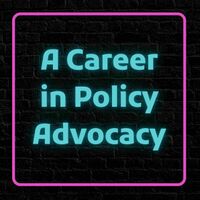A Career in Policy Advocacy

- Who: Ayden Férdeline
- Date: Wednesday, May 17th
- Time: 9am EDT / 1pm UTC (What time is it in my city?)
- Language: English
- Location: Zoom
RSVP: https://digitalrights.formstack.com/forms/welcometodigitalrights
A Career in Policy Advocacy with Ayden Férdeline
Policy isn’t just for politicians. As an informed advocate and changemaker, you can have a direct and positive impact on how the Internet is developed. Hear from Ayden Federline, currently a Landecker Democracy Fellow, on what it takes to develop a career in policy advocacy. Learn how he got started in the field, what skills are in demand, and what do job prospects look like in the future.
Speaker:
Ayden Férdeline is a Landecker Democracy Fellow where, with the support of the Alfred Landecker Foundation and Humanity in Action, he monitors the development of the UN Secretary-General’s proposed Global Digital Compact ahead of 2024’s Summit of the Future. He was previously a rapporteur with the Forum on Information and Democracy, a research consultant to the National Democratic Institute as well as the National Endowment for Democracy, and a Mozilla technology policy fellow.
Notes & Resources
Interview Recording & Resources
We will post the resources soon
Q&A Section
What sort of background, exploratory or policy gap analysis research do you or your team undertake and what methods/skills do you find most helpful? (Marcus)
It always depends on the issue. We have to understand how the problem can be solved. If the ecosystem has the resources for been solved. More powerful actor maybe will not help you so it's a bad context. Who has the power and willing to help you fix the problem. Policy Analysis with the problem tree analysis is very useful. What are the modalities fro addressing the issue and who can participate, what coalitions and networks do I need during the process. What is the long term goal, usually is to change policies, legislation and regulation. That can involve educating decision makers and mobilize audiences. Basically, being mindful who you need to persuade. Who, with more power than us, is as unhappy than us. Matching energies is important.
Could you recommend any professional/online courses or fellowships for someone who wants to gain skills needed for a career in policy advocacy? Particularly as it relates to minority rights, internet governance and mis/disinformation.
I can't recommend any courses now, but I can recommend literature. One hot skill is to be aware of trends that are impacting the ecosystem and how to analyze it. Internet Governance Project is a great web to have there. The Register has good coverage of technical governance, ITF has a working group on HR groups on protocols. Is important to understand what is current at the moment, more than paying for courses. APC has amazing resources in emerging issues as Article 19.
What advice would you give for a newbie who wants to venture into the policy advocacy space?
Coming into the space is worldwide and engaging so there is space for new comers, try to make it happen. You need to be trustworthy and transparent. Make connection with the private sectors and governments being careful with the power dynamics. Build relationships in a strong networks and coalitions, collaborate. Technical knowledge is useful and the injustices that the community is suffering at the moment. A common mistake is thinking that you must be a formal leading role. You need to be persistence, resourceful, and bring solide evidence to the table. Not formal corporate history. Having the privilege of living in the same time-zone, cultural background, sector... makes everything easy and it's something we must keep in mind. You have to block the people that will not be concious about this out.
Best practices to switch work environment private to NGOs, having a useful background as studies but not as much concerning the work done.
I am happy to bring some practices from the private sector as a representative of the civil society. I understand that this does not work for everyone. I try to find the balance between the soft skills that you get in the private sector (measurement, documenting, etc) with the ideas and values and goal of the Digital Rights community. How to frame the argument so the broader audience can understand and engage.